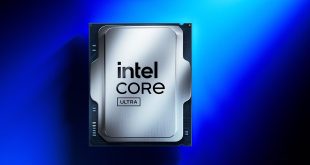Once again, the Geekbench 5 database is giving us a glimpse of what to expect from Intel and AMD's upcoming processors. This time, the two CPUs spotted in the database were the Intel Core i7-11375H and the AMD Ryzen 9 5980HS, with Intel coming out ahead in single-core and AMD's CPU winning in the multi-core test.
First, we have the Intel Core i7-11375H, a 4C/8T processor with a base clock of 3.3GHz and a maximum boost frequency of 5.0GHz. Aimed at mid-range gaming laptops, this Intel Core i7 processor features a 28-35W TDP. In the Geekbench 5 entry found by @TUM_APISAK, we can see the system equipped with the Intel CPU was an Asus TUF Dash 15, previously introduced at CES 2021.
As for the AMD Ryzen 9 5980HS, this processor features an 8C/16T core configuration and a 35W TDP. The base clock of this processor is set at 3.0GHz, but it boosts up to 4.8GHz. There are multiple entries with the Ryzen 9 5980HS, but only the latest has the CPU operating at its maximum boost clock. As per the Geekbench 5 entry, the system used for the benchmark run was the Asus ROG Flow X13, which was also announced at CES 2021.
ASUS TUF Dash F15 FX516PR
i7-11375H
4 Cores, 8 Threads
GenuineIntel Family 6 Model 140 Stepping 1
Base Frequency 3.30 GHz
Maximum Frequency 5.00 GHzhttps://t.co/mnsKXyfDhC pic.twitter.com/jcezMVbCy5— APISAK (@TUM_APISAK) January 23, 2021
In multi-core workloads, the sheer number of cores on the AMD Ryzen 9 5980HS makes the outcome quite predictable. The AMD Ryzen processor scored a whopping 8465 points, outdoing the whole 10th Gen Core line-up of mobile processors and the upcoming i7-11375H, which scored 5159 points.
When referring to single-core scores, the tables turn towards Intel, with the Core i7-11375H scoring 1577, beating the Ryzen 9 5980HS by about 2.5% (1537). The Intel processor has the higher score in this single-core benchmark, but both SKUs were running on different laptops, each with its own cooling system. Given how modern boosting algorithms work, a lesser cooling solution can impact the performance of the CPU, therefore, the actual difference between both processors could change depending on the laptop.
KitGuru says: In your opinion, is multi-core performance more important than single-core performance? Which processor would you choose between these two?
 KitGuru KitGuru.net – Tech News | Hardware News | Hardware Reviews | IOS | Mobile | Gaming | Graphics Cards
KitGuru KitGuru.net – Tech News | Hardware News | Hardware Reviews | IOS | Mobile | Gaming | Graphics Cards


